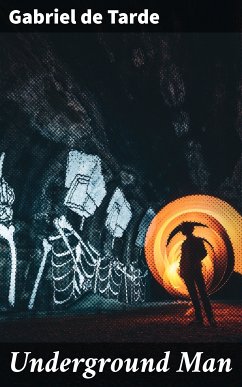In *Underground Man*, Gabriel de Tarde crafts a thought-provoking exploration of individuality and social interaction through the lens of his unique philosophical ideals. Written in the context of late 19th-century France, Tarde's narrative oscillates between fiction and philosophical discourse, employing a modernist style that subverts traditional storytelling. As he delves into the psyche of his protagonist, Tarde weaves a complex tapestry of psychological and social commentary, challenging prevailing notions of morality, human behavior, and the interplay of influence among individuals in an increasingly mechanized society. Gabriel de Tarde was a pioneering sociologist and philosopher whose ideas often clashed with positivism and traditional scientific thought. His background in law and experience in the judicial system informed his perspectives on social dynamics and the nature of influence. Tarde's emphasis on the role of imitation and the interconnectedness of social actions reflects his attempt to bridge the gap between individual agency and collective behavior, culminating in the creation of *Underground Man* as a medium to articulate these convictions. This book is a must-read for those interested in the foundations of social theory and the psychological underpinnings of modernity. Tarde'Äôs incisive prose and innovative thought not only offer a captivating narrative but also invite readers to reflect deeply on their own existence within the social fabric.
Dieser Download kann aus rechtlichen Gründen nur mit Rechnungsadresse in A, B, BG, CY, CZ, D, DK, EW, FIN, F, GR, H, IRL, I, LT, L, LR, M, NL, PL, P, R, S, SLO, SK ausgeliefert werden.









